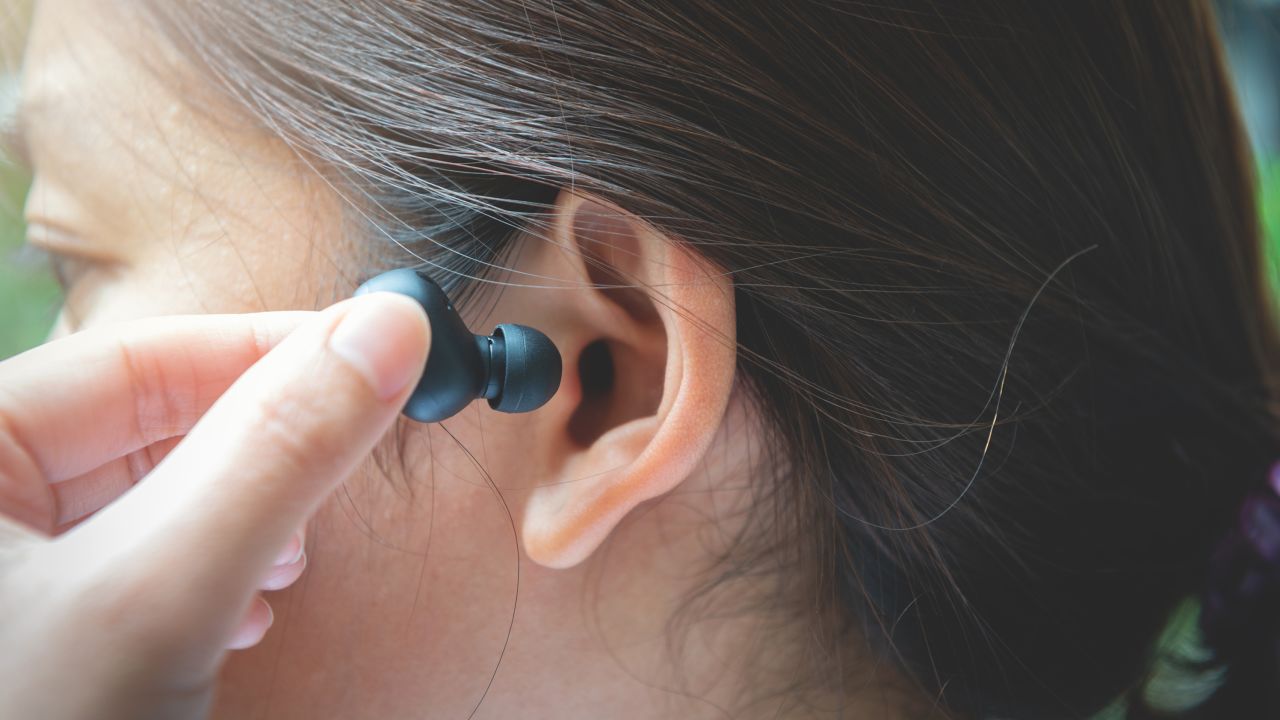He lost his hearing and now he paints to listen 6:26
(CNN) --
Turning the volume down isn't just something annoyed parents ask for: A new study shows it could protect more than 1 billion people at risk of hearing loss.
When it comes to phones, music, movies and shows, it's common for teens and young adults to listen too loudly and for too long, according to a study published Tuesday in the academic journal BMJ Global Health.
"We estimate that between 670 and 1.35 billion people between the ages of 12 and 34 worldwide have unsafe listening practices" and are therefore at risk of hearing loss, says study lead author Lauren Dillard. , via email.
Dillard is a consultant to the World Health Organization and a postdoctoral fellow at the Medical University of South Carolina.
Exposure to sound at too high a volume can fatigue sensory cells and structures in the ear, Dillard explains.
If this goes on too long, they can be permanently damaged, leading to hearing loss, tinnitus, or both.
According to the study, the researchers conducted a meta-analysis of scientific articles on unsafe listening practices published between 2000 and 2021 in three databases.
advertising
Unsafe practices were tracked based on the use of headphones and attendance at entertainment venues, such as concerts, bars and nightclubs, according to the study.
The US Centers for Disease Control and Prevention (CDC) limits safe noise levels to about 85 decibels for 40 hours a week.
If only listened to for 2.5 hours a day, that equates to about 92 decibels, according to the study.
Graizer: "Noise pollution is the main cause of hearing loss"
People who listen to MP3 audio files connected to a smartphone tend to choose volumes up to 105 decibels, and in venues these usually range between 104 and 112 decibels, according to the study.
Fortunately, policies, companies, and individuals can implement measures to encourage safe ways to listen and protect hearing from damage over time, Dillard says.
The study analysis was rigorous, and the evidence is compelling that hearing loss should be a public health priority, said De Wet Swanepoel, a professor of Audiology at the University of Pretoria in South Africa.
Swanepoel is not affiliated with the study.
"Music is a gift to be enjoyed for a lifetime," said Swanepoel, who is also editor-in-chief of the International Journal of Audiology.
"The message is that you have to enjoy the music, but safely."
What to do with your device?
Sound limits to protect you from hearing loss depend on the duration and volume of listening, according to experts.
Credit: Adobe Stock
Whether you're listening on your own device or at a concert, Dillard cautioned that ringing in the ears is a sure sign that the music was too loud.
However, there are ways to prevent the damage before you notice the effects.
Some devices let you control listening levels in device settings, he explains.
Some even let you know when you've been listening too loud for too long.
"If your device tells you that you are listening at unsafe levels, turn down the volume and listen to the music for less time," Dillard explains by email.
Experts can't say conclusively which headphones are the safest, Dillard said, but he did recommend using ones that reduce background noise, which can help keep the volume at lower levels since you don't need to drown out the noise. noise around you.
Barbie introduces her first doll with hearing aids
But you don't always have volume control.
If you're at a loud concert or venue, you can protect your hearing by sitting further away from the speakers and taking breaks away from the noise, if possible, Dillard says.
And it always helps to wear some sort of ear protection;
even foam earplugs work, he added.
"Hearing is the sense that connects us with the people we love," Swanepoel says in an email.
"Taking care of our hearing is essential to maintaining a healthy relationship and overall health and well-being. Primary prevention in the first years of life is essential to avoid the early onset and acceleration of age-related hearing loss."
Hearing loss

